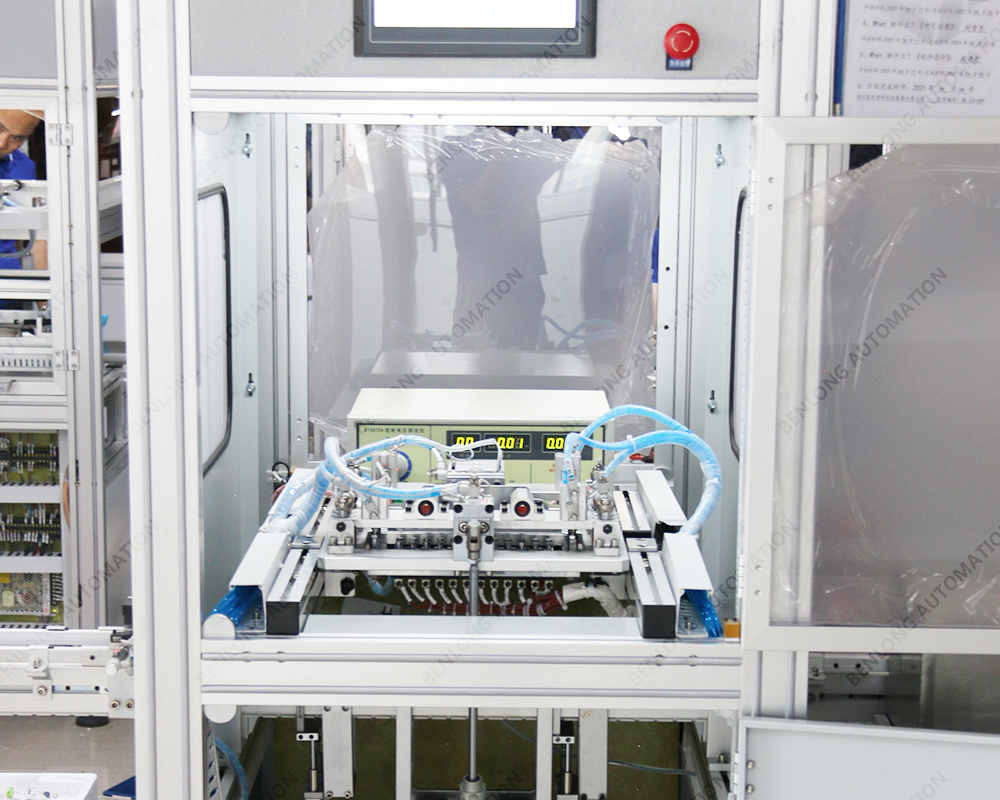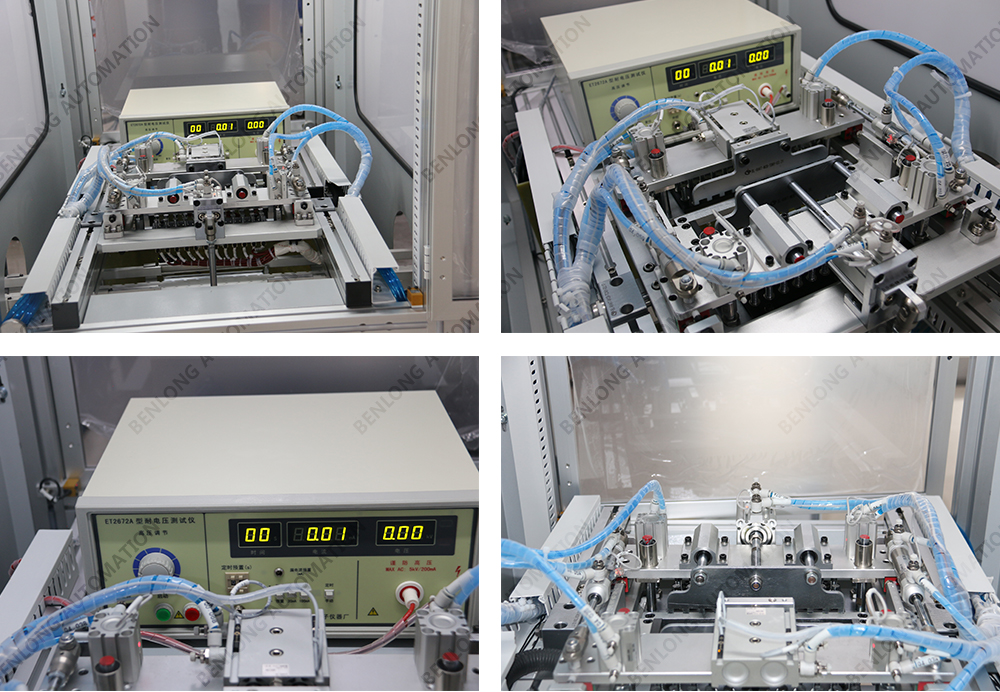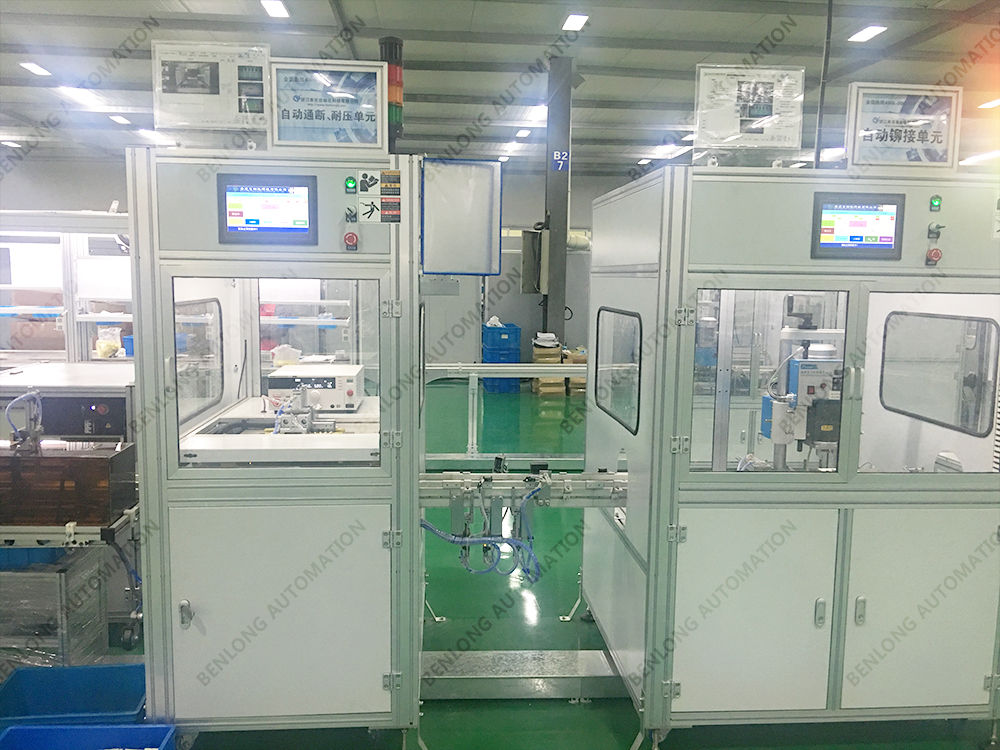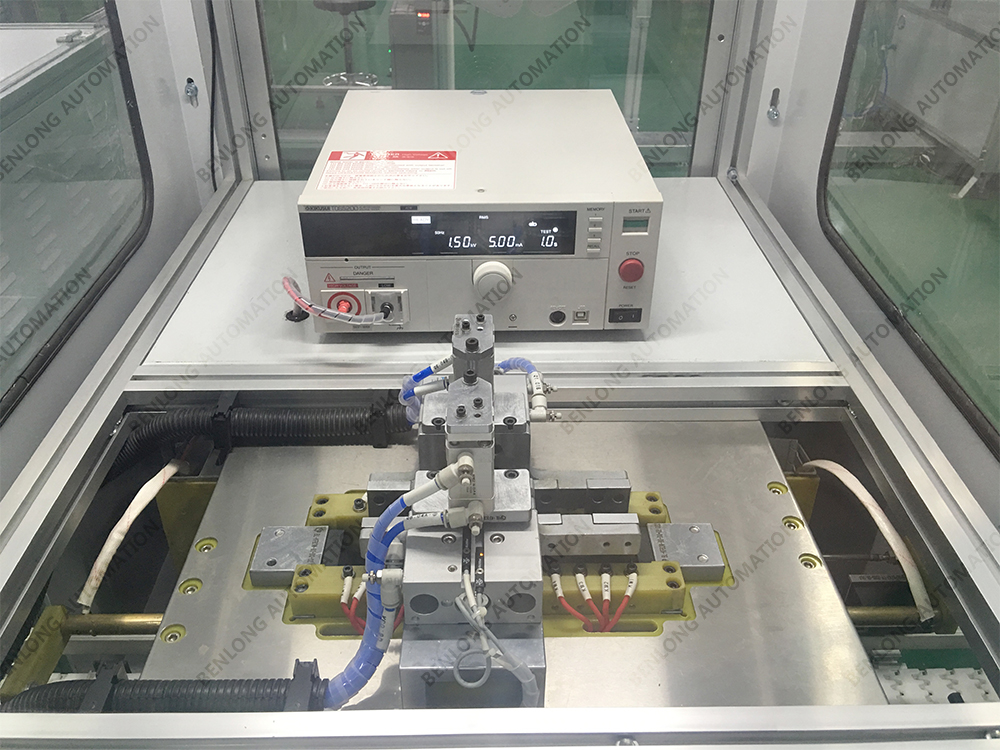Internet of Things intelligent miniature circuit breaker automatic withstand voltage testing equipment
See More>>1. Equipment input voltage: 380V ± 10%, 50Hz; ± 1Hz;
2. Device compatibility poles: 1P, 2P, 3P, 4P, 1P+module, 2P+module, 3P+module, 4P+module.
3. Equipment production rhythm: ≤ 10 seconds per pole.
4. The same shelf product can be switched between different poles with just one click or by scanning the code; Different shell products require manual replacement of molds or fixtures.
5. High voltage output range: 0-5000V; The leakage current is available in different levels of 10mA, 20mA, 100mA, and 200mA.
6. Detection of high-voltage insulation time: The parameters can be set arbitrarily from 1 to 999S.
7. Detection frequency: 1-99 times. The parameter can be set arbitrarily.
8. High voltage detection position: When the product is in the closed state, detect the voltage resistance between phases; When the product is in the closed state, check the voltage resistance between the phase and the bottom plate; When the product is in the closed state, check the voltage resistance between the phase and the handle; When the product is in the open state, check the voltage resistance between the incoming and outgoing lines.
9. The product can be tested horizontally or vertically as an optional option.
10. The equipment has alarm display functions such as fault alarm and pressure monitoring.
11. There are two operating systems available: Chinese and English.
12. All core accessories are imported from different countries and regions such as Italy, Sweden, Germany, Japan, the United States, and Taiwan.
13. The equipment can be optionally equipped with functions such as the Smart Energy Analysis and Energy Conservation Management System and the Smart Equipment Service Big Data Cloud Platform.
14. Having independent independent intellectual property rights.












